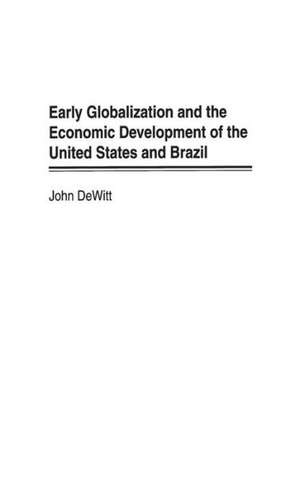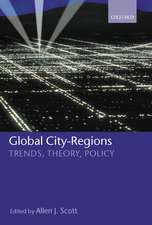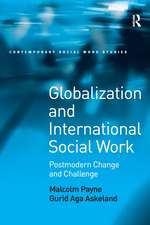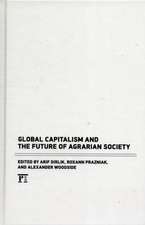Early Globalization and the Economic Development of the United States and Brazil
Autor John W. DeWitten Limba Engleză Hardback – 29 ian 2002 – vârsta până la 17 ani
Preț: 437.31 lei
Preț vechi: 603.94 lei
-28% Nou
Puncte Express: 656
Preț estimativ în valută:
83.68€ • 87.59$ • 69.65£
83.68€ • 87.59$ • 69.65£
Carte tipărită la comandă
Livrare economică 31 martie-14 aprilie
Preluare comenzi: 021 569.72.76
Specificații
ISBN-13: 9780275971991
ISBN-10: 0275971996
Pagini: 200
Dimensiuni: 156 x 235 x 21 mm
Greutate: 0.49 kg
Editura: Bloomsbury Publishing
Colecția Praeger
Locul publicării:New York, United States
ISBN-10: 0275971996
Pagini: 200
Dimensiuni: 156 x 235 x 21 mm
Greutate: 0.49 kg
Editura: Bloomsbury Publishing
Colecția Praeger
Locul publicării:New York, United States
Notă biografică
JOHN DEWITT is Adjunct Professor of Geography at the University of Florida.
Cuprins
IntroductionThe Mother Countries: World Power and Vassal State; Mercantilism Dominates Colonial PoliciesAtlantic Ocean Circulation Systems, Early Settlements, and Land Distribution SystemsPlantation Agriculture Creates a New World CivilizationEngines of Economic Development (Part I): Fishing, Whaling, and Ship ConstructionEngines of Economic Development (Part II): Trade, Commerce, and Family Farm Agriculture1808: "Economic Fault Line" and "Line of Demarcation"; Protectionism and Free Trade as Development StrategiesGlobal Economy Relationships between Core and Noncore States19th-Century TransformationsFrom the Colonial Era to the Gilded Age and the Belle EpoqueSelected BibliographyIndex
















